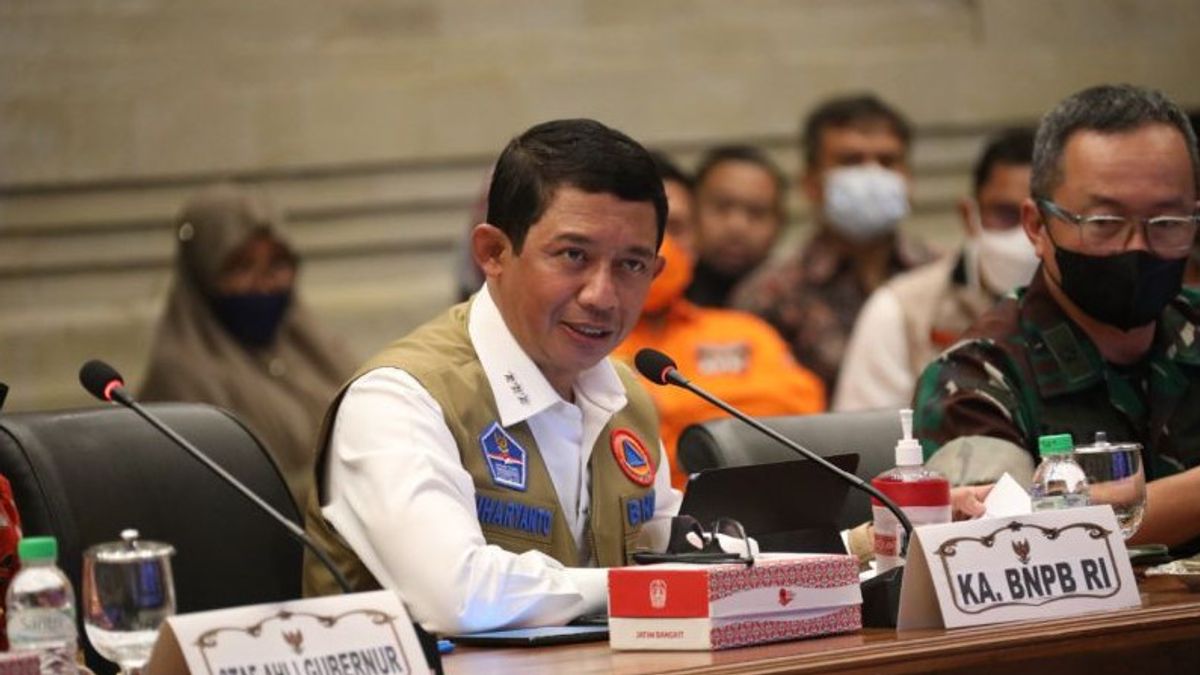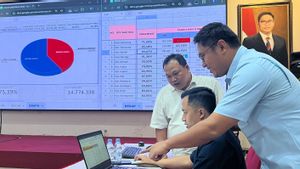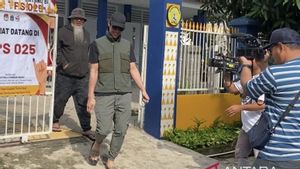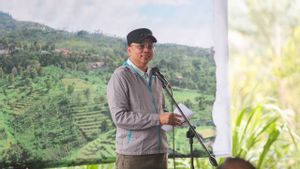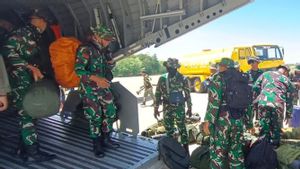JAKARTA - Head of the Task Force (Satgas) for Handling Mouth and Nail Diseases (PMK) Lt. Gen. TNI Suharyanto asked large-scale breeders to report health data on all livestock owned.
This is because many large-scale farms have not reported data on their livestock, whether they are healthy, have been vaccinated or have contracted FMD.
"We must fix this immediately, so that correct and complete data can be presented to determine the next handling steps," said Suharyanto in a written statement, Monday, June 27.
He said East Java was one of the provinces that had the most active cases of FMD in Indonesia.
Data as of Saturday, June 25, the total number of animals infected with FMD in East Java Province was 100,492 tails. There were 82,056 active cases of PMK, with details of 81,697 cows, 60 buffaloes, 217 goats, and 82 sheep. Meanwhile, 563 animals died.
In the Coordination Meeting for Handling PMK at the Office of the Regional Secretary of East Java Province, Saturday, June 25, Suharyanto emphasized that data collection on livestock must be carried out quickly and accurately in the next few days.
The data collection, he continued, will be used as the basis for fulfilling the vaccination dose which will be given to livestock. In addition to livestock data, there is also data on the need for vaccinators in each district/city.
He asked the local government to ensure that veterinarians and veterinary authorities are available in each area as veterinary authority (POV) officials.
Regarding vaccination, as many as 800,000 doses of vaccination are available. As an initial stage, East Java Province received an allocation of 350,000 doses of vaccination. Vaccination is one of the efforts to build immunity in the body of livestock.
A total of 350,000 doses of the vaccine will be prioritized for small-scale or privately managed breeders. "Meanwhile, large-scale farms can carry out vaccinations independently if needed," said Suharyanto.
In accordance with President Joko Widodo's direction to quarantine the micro-level area, if 50 percent of the sub-districts of a province are infected with FMD or enter the red zone. This means that there is no mobilization of livestock between villages, sub-districts and provinces in the zone, to reduce the potential for transmission.
"East Java has entered the red zone. Regarding sacrificial animals, I repeat again, if the needs are not met in one area, there is no need to mobilize livestock between regions. This is to strengthen the implementation of regional quarantine," he said.
In the coordination meeting, Suharyanto, who is also the Head of BNPB, appreciated the East Java Provincial Government for being swift in activating the PMK Handling Task Force at the provincial and district/city levels.
Similar to the COVID-19 Task Force, the PMK Task Force consists of all related elements, such as the Livestock Service, Health Service, Transportation Service, Diskominfo, BPBD, TNI/Polri, Veterinary Association, students, and elements of community organizations related to animal health.
This task force will control and ensure that there is no mobilization of livestock. Suharyanto also asked for tighter guarding at the border. "There needs to be micro-level restrictions so that the infection is immediately cut off and the safe zone does not get infected," he said.
On that occasion, Suharyanto visited the Setia Kawan Dairy Farming Cooperative (KPSP) in Nongkojajar, Pasuruan Regency, East Java.
KPSP Nongkojajar has 27,000 dairy cows that are bred. As a measure to prevent the spread of FMD, as many as 25,000 doses of vaccine were allocated to KPSP Nangkojajar.
On that occasion, Suharyanto received an explanation of the flow of data collection on animals that had carried out PMK vaccinations. The data will be entered by officers in the National Animal Health Information System (iSIKHNAS).
Later, the data contained in iSIKHNAS will be integrated with the United Against COVID application which was previously also used to record COVID-19 cases.
Suharyanto and his entourage saw firsthand the vaccination process for cattle in one of the cages built by KPSP Nangkojajar. Vaccines for PMK will also be given the same as the COVID-19 vaccination, which is three times.
The English, Chinese, Japanese, Arabic, and French versions are automatically generated by the AI. So there may still be inaccuracies in translating, please always see Indonesian as our main language. (system supported by DigitalSiber.id)
